Responsible Safari in Africa: how to travel ethically
So, you’ve booked your dream safariand your head is filled with the prospect of vast African plains dotted with thorn trees, giraffes nibbling on their leaves, as the sky turns from pink to brilliant orange as the sun sets beyond the horizon. (If you haven‘t yet booked, now is the time. Our knowledgeable consultants are ready to help you plan your dream safari, contact them now.) In the back of your mind, though, is that niggling worry about spending so much money visiting a place where a large part of the population lives in abject poverty. And then there’s the environmental impact of travel.
Firstly, remember that tourism is a major source of income in Africa and, as such, provides employment and income to many people, often in very remote areas, where job opportunities would otherwise be few and far between. In South Africa, tourism and travel brought in over R400 billion (~ USD 27 billion) in revenue in 2017, which is over 9% of the GDP.
So, yes, just your visiting is contributing to the economy but, we agree, it’s important to be a conscientious and responsible traveller and give back. We are often asked by clients how travel in Africa can be done ethically and sensitively, so we’ve gathered together a few ways to travel with a conscience.
ENVIRONMENTAL CONSCIOUSNESS
Cover your carbon footprint
One of the worst contributors to global carbon emissions is the travel sector, contributing an estimated 8% each year. There’s no way of getting to Africa – unless you’ve got weeks on hand for travel – but to fly, so how do you counter your carbon footprint?
If you want to be precise, you can calculate your carbon emissions using one of the free online calculators, like Carbon Footprint. Once you know your footprint (or, if you’re not bothered with calculations), there are several ways to counteract your travel emissions.
Plant a Tree
You can join many tree-planting projects around the world, like Carbon Footprint’s Kenyan project which has planted over 150,000 trees in Kenya’s Great Rift Valley. Donate or join one of their tree-planting events!
 Greenpop by Facebook
Greenpop by Facebook
Greenpop, established in 2010, works in South Africa, Zambia, Malawi and Tanzania, and offers tree-planting trips and events, giving environmental education in the community and green urban spaces, among other environmentally friendly activities. You can join or donate.
If you’re not keen to get your hands dirty, there are a plethora of organizations that welcome donations. Food and Trees for Africa, based in South Africa, has planted over 4.2 million trees and thousands of food gardens over the past 27 years, ensuring not only that the planet is replenished, but also bringing food security to communities.
Water sensitivity
Water is scarce in a large proportion of Africa, so do your bit to save water while on safari. You can do this in several ways:
- Do your homework: choose destinations and accommodations that are/is eco-friendly
- Don’t complain if there’s no pool to swim in/electricity only for a couple of hours a day, if at all etc. It’s Africa, embrace it
- Take short showers, preferably into a bucket that gets recycled
What not to do on safari
There are hundreds of articles on what to do on safari, but not many on what not to do, to respect and preserve the environment. Often, travelers engage in activities that are harmful to animals and the environment without even realizing it. We’ve created a blog to prevent this: The Essential Safari Anti-Bucket List – Things to Avoid & Helpful Alternatives.
Green Seat/Tax
Many tour operators offer a ‘green tax’ that can be added on to the total price of your tour. This money is then fed into projects in the region that promote sustainability. If you don’t have time or energy to research where you’d like your money to go, pay this.
Wildlife organizations
There are many organizations whose sole aim is to protect Africa’s wildlife, many of whom are in danger of extinction. These organizations welcome donations and, if you’re on a tight budget, exposure is good too – share on social media and talk to your friends.
Some of these wildlife conservation organizations include:
- Save the Rhino
- African Wildlife Fund, who have a Mountain Gorilla Programme
- Birdlife International’s Vulture Programme
SOCIAL CONSCIOUSNESS
How do you make a difference in the lives of the people living in the communities through which you travel? As you will see, there are many simple ways that you can do good while traveling in Africa.
Cultural sensitivity
First and foremost, do a little homework on the culture of the people living in the places you’re traveling to and be sensitive to that culture. Unsure how to act? Ask a local. Africans are renowned for their friendliness and we are very happy to share our different cultures and let you know what’s okay and what’s not.
Buy local
When buying curios and gifts to take home, support artists and craftsmen selling their own wares, rather than big stores that put huge markups on their goods.
Buying from the source ensures that the income made goes to support local families. Check out our blog, How and Where to Buy Souvenirs, Curios & African Art, for more ideas.
Giving back
Giving money is not ideal (other than paying porters, tipping taxi drivers etc. See our blog Tips for Tipping), but donations, such as clothes and school supplies are welcomed.
Pack for a Purpose
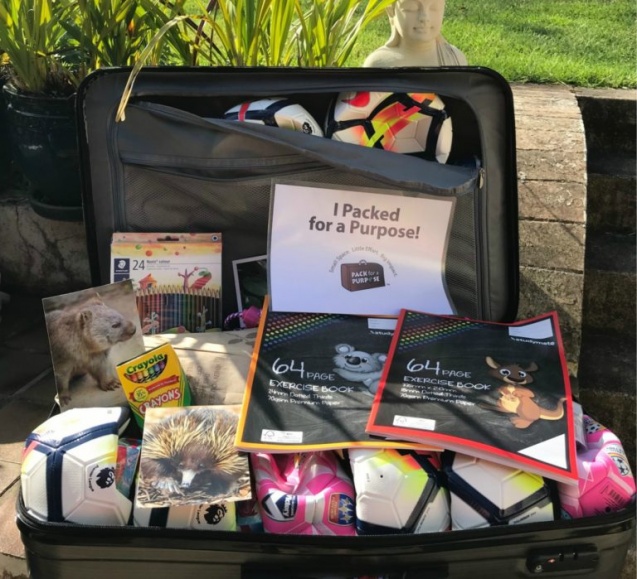 Packed by Pack for a Purpose
Packed by Pack for a Purpose
This organization directs you to places in whichever destination you’re visiting and lets you know exactly what they need, so you can fill the space in your luggage you’re keeping to bring home gifts and curios, with things that are needed. Their tagline says it all: “Small space. Little effort. Big impact.” It’s a win-win situation.
Carry on 4 Babies
A similar drive, on a smaller scale, is Carry on 4 Babies, which is a network of volunteers who connect those with things to donate to those who need them, to improve the lives of babies and children, mainly with clothes. Contact them if you’d like to get involved.
Ask local and donate time
Often the best way to find out how to donate to places that will get your donations to the right beneficiaries is to chat with the local camps that you visit. Many tours offer day-long activities that include visiting local communities and there are often opportunities to spend a day helping.
Think painting a wall at a school, reading a story to children or using your skills to provide some much-needed help (plumbers, accountants, electricians, builders etc.) Even just a couple of hours can make a surprisingly large difference, especially in remote and rural areas.
School supplies, clothing and toiletries
Places like Malawi, Tanzania and Zimbabwe are always looking for school supplies: pens, pencils, small notebooks and coloring pencils are always needed and are easy to pack in your suitcase.
Clothing is also welcomed and simply donating your clothes, shoes and even sleeping bag/camping gear at the end of a trip is a good way to give back.
Toiletries, too, are a great thing to donate – soap, toothbrushes, sanitary pads. Each year thousands of young girls miss school for up to a week each month because they can’t afford sanitary pads. Donate these to schools, from where they can be distributed or donate to one of the many programs, like Save the Children’s ‘Keeping Girls in School’.
The Shoe That Grows
While visiting Nairobi, Kenya in 2007, American Kenton Lee came up with a brilliant plan which he took back to the US with him and put into practice. He designed a shoe that can be adjusted to get bigger as a child grows. Over the next few years, he gathered a team together and perfected the design. Since then The Shoe that Grows has distributed almost 200 000 pairs of shoes in over 100 countries, many of them in Africa.
Education, education, education
One of the biggest hurdles in Africa is education, with a vast majority of children not completing school and, in some cases, not even starting school due to a huge number of hurdles, financial, social and spatial.
African Child Feeding Scheme
It’s impossible for a hungry child to concentrate in class. Several organizations have the sole purpose of making sure kids get at least one solid meal a day. The African Child Feeding Scheme has come a long way since it was first started by Bishop Trevor Huddleston in 1945 when it distributed peanut butter sandwiches at school. Now the program provides 31 500 children with a peanut butter sandwich and milk every day while running various other inter-related projects.
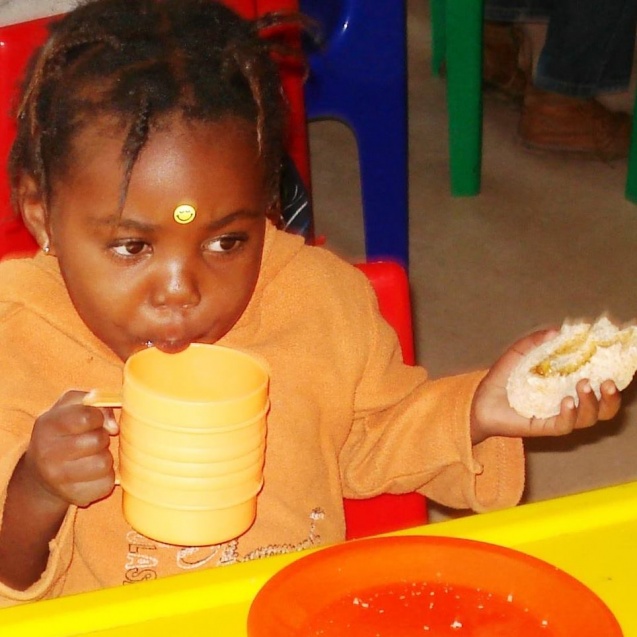 African Child Feeding Scheme by Facebook
African Child Feeding Scheme by Facebook
Build Africa
For less than 30 p (40c, US) per day, you can sponsor a child in Africa. Unlike other child sponsorship projects, Build Africa runs a 'child ambassador' scheme, which supports wider work in communities, promotes education, supports the growing of food, and helps break the cycle of poverty.
 Build Africa by Facebook
Build Africa by Facebook
SOS Africa
SOS Africa, too, focuses not only on the education of children but includes aftercare, transport, clothing and school supplies, thus making sure the kids have all they need to get their education.
Closer to home
A number of the staff at African Budget Safaris have charity organizations they work with regularly. Harriet does huge amounts of work with Hout Bay Rotary which supports and volunteers at numerous projects, including orphanages and old people’s homes.
 Joya Homes by Facebook
Joya Homes by Facebook
Bronwyn volunteers at a fabulous group called Joya Homes which has a foster home and an orphanage that they work with to provide food, medical care and education to some children. They have recently built a foster home and have had their first intake of children. These children will grow up with a wonderful foster mom in the home from when they are admitted until they are ready to face the world.
Ask one of our great travel consultants for what you can do, and where, and make your safari not only an incredible travel experience but a socially and ecologically responsible one too!


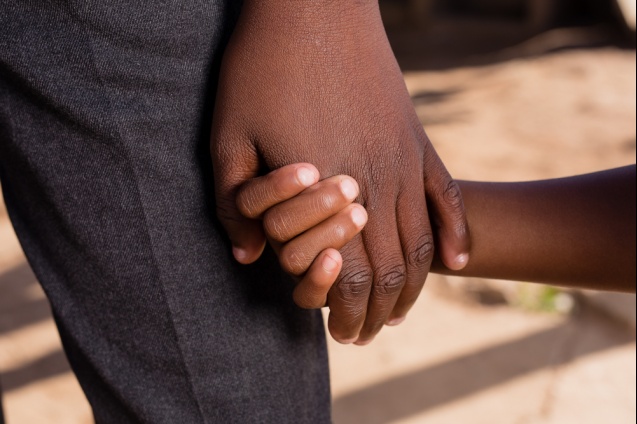




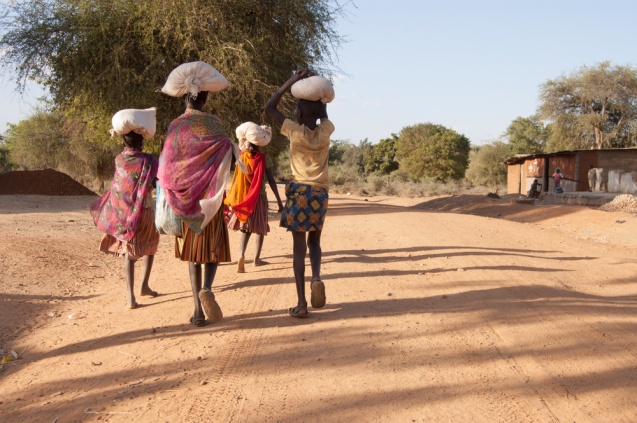
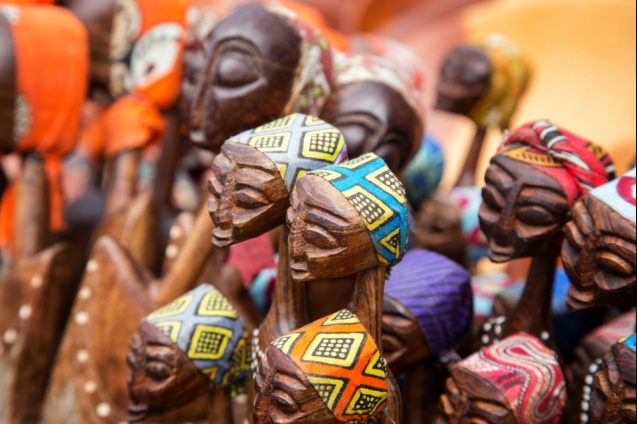


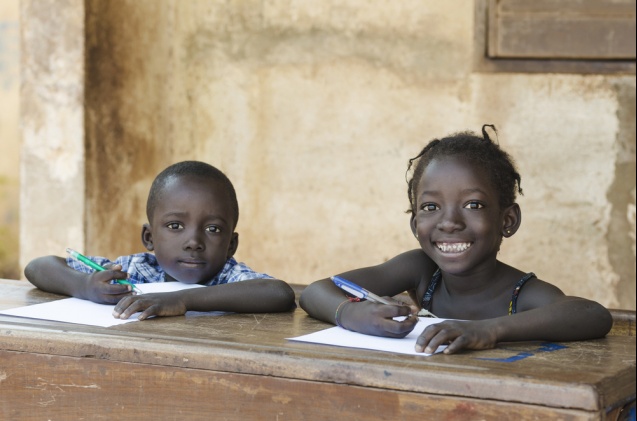

__medium.jpg)
 Briony is a qualified pharmacist, published author and travel blogger living in Cape Town. She writes her own blog about travel, the arts, music and the good things in life, with a focus on accessibility. She likes watching the world go by, and sometimes it makes her nose twitchy, but mostly it provides golden nuggets with which to light up the page.
Briony is a qualified pharmacist, published author and travel blogger living in Cape Town. She writes her own blog about travel, the arts, music and the good things in life, with a focus on accessibility. She likes watching the world go by, and sometimes it makes her nose twitchy, but mostly it provides golden nuggets with which to light up the page.








